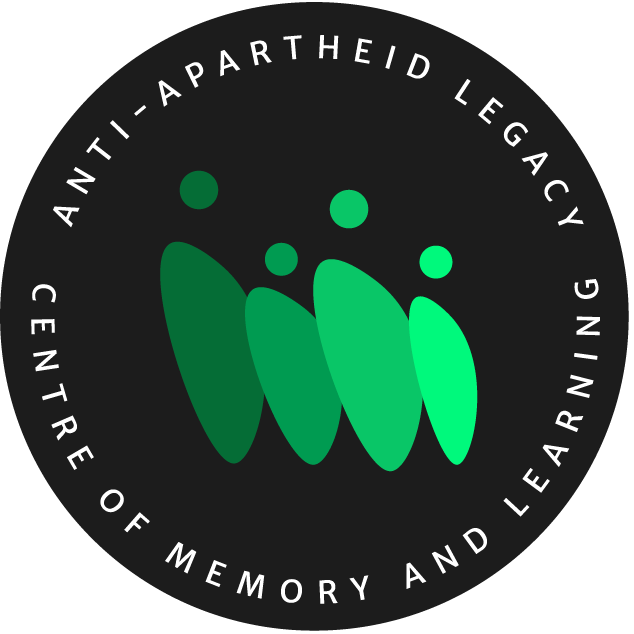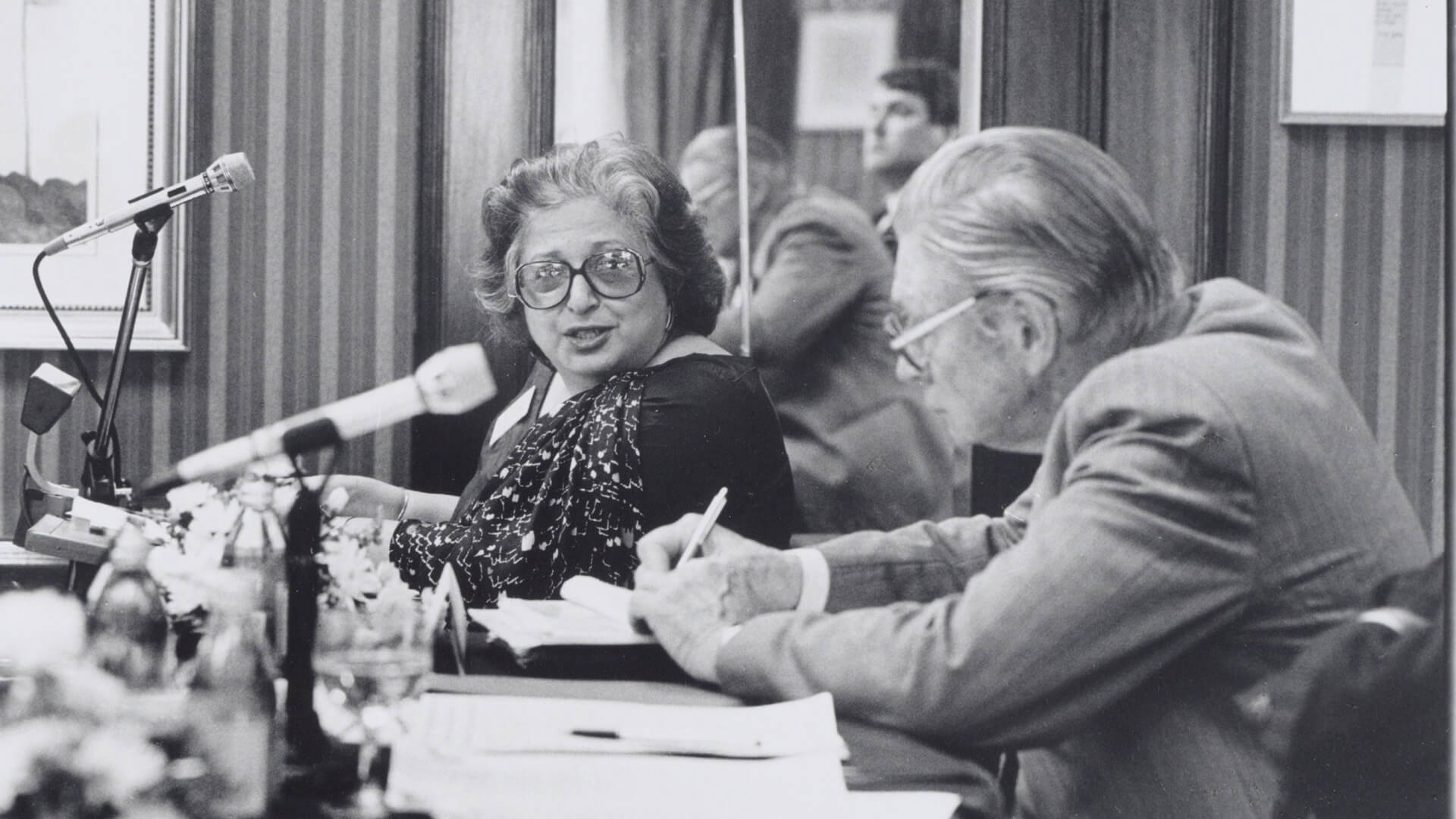TLTU pays tribute to Frene Ginwala
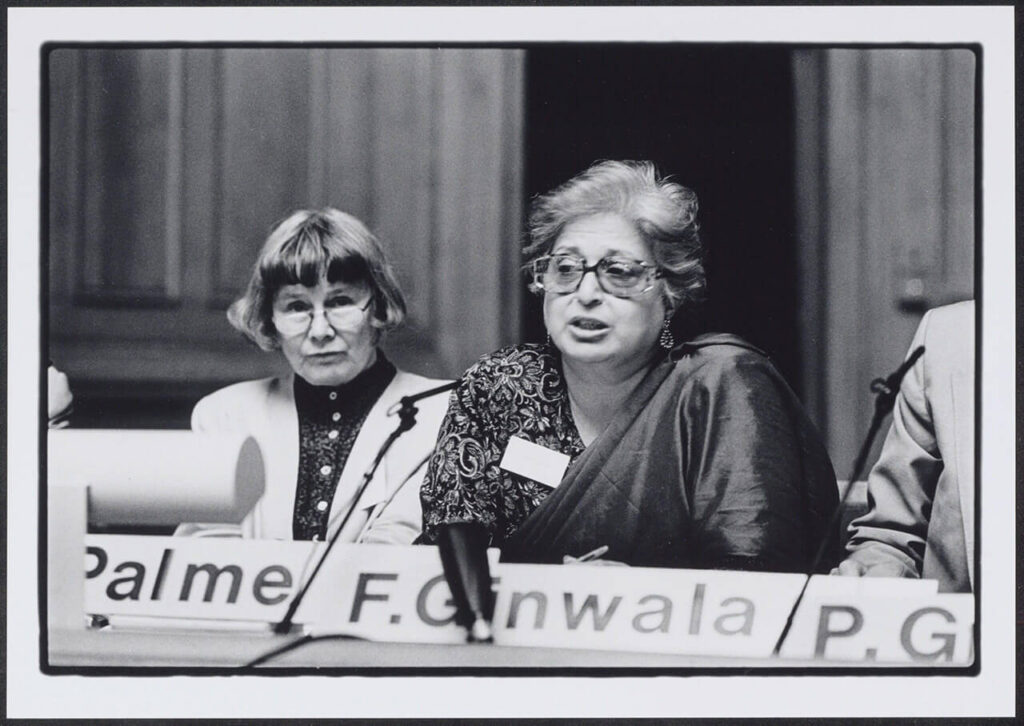
The Liliesleaf Trust United Kingdom (TLTU) has regrettably learnt of the passing of Frene Ginwala – a long time servant of the South African people both during the struggle against apartheid, and also in the free, post-apartheid and democratic era.
Elected as the first Speaker of the National Assembly in 1994, the Johannesburg-born Ginwala had been involved in the struggle from an early age.
Beginning in the early 196os, she had been part and parcel of the efforts to organise safe houses and routes for the safe passage into exile of her comrades in the underground structures of the then banned African National Congress (ANC). She also made a contribution to the Natal Indian Congress, of which she was a member in various roles. Including that of a chauffeur.
Image source: Contact Magazine – Vol. 4- No. 17 – Aug -1961
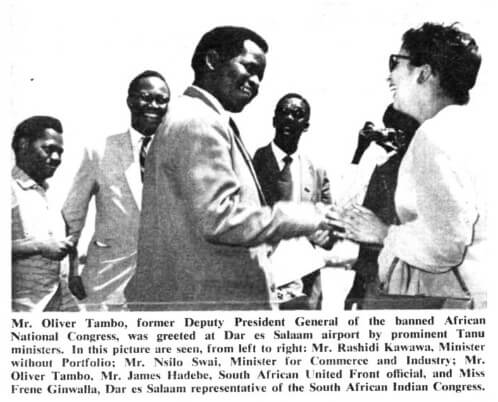
Having being based in Tanzania, she is sure to have played a role in the background machinations for the formation of the South Africa United Front, a Dar-es-Salaam, based collaborative movement comprised of the ANC, the Pan Africanist Congress of Azania (PAC) and the South West African Peoples Organisation (SWAPO).

Ginwala personified the well-known adage of her generation that said “I did not choose the struggle..the struggle chose me..” and this is very well reflected in the fact that the direction of the various roles in her career were essentially more of deployments rather than choices. Amongst her various tasks in the struggle, Ginwala was a Barrister, an official advisor to ANC President Oliver Tambo in London, head of the ANC Emancipation Committee, Coordinator of the ANC Oil Sanctions Unit, and one of the convenors of the ANC Women’s League re-launch conference after the unbanning of political parties in 1990.
‘The Press in South Africa’
As a journalist, she penned and contributed to various papers at the United Nations Centre Against Apartheid, including the one entitled ‘The Press in South Africa’ in 1972, as well as ‘African Workers Strike Against Apartheid’ in 1973
In the latter paper, she highlights the vast disparity in the living conditions between various labour groups in South Africa as motivated and represented by the wage structure.
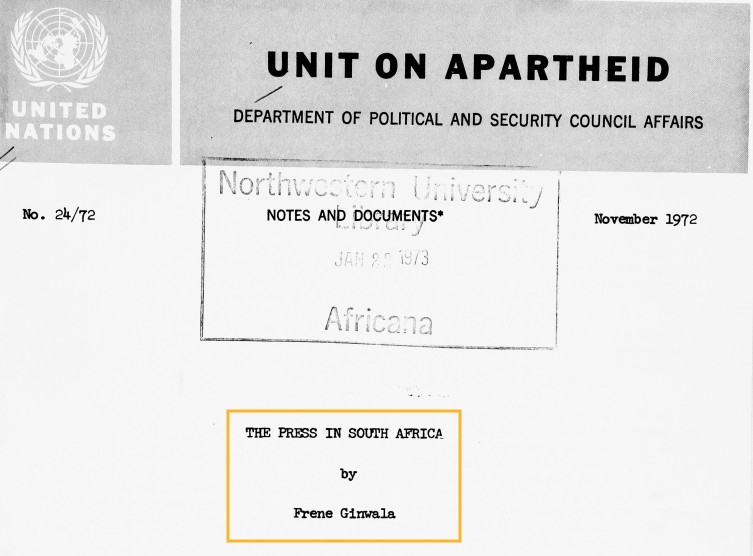

African Workers Strike Against Apartheid’
“The poverty datum line, which is the yardstick most commonly in use in relation to black South African wages, is itself an inadequate level. Its use as a goal still to be attained in the richest country in Africa, where white wages compare favourably with those in some of the richest Western countries, is the severest possible condemnation of the apartheid system.”
‘African Workers Strike Against Apartheid’ (United Nations Centre against Apartheid’, Ginwala, Frene 06-01-1973 p.32).
Apart from her public-facing work, the University of Oxford Phd graduate delivered a lot of work for the struggle behind the scenes. Along with Dr. W Solodovnikov, the USSR Ambassador to Zambia in the 1960s, she is credited with engineering much of the post-1960 political strategies of the ANC and the South African Communist Party (SACP). She was not only considered to be an astute historian of the role of women in the ANC, but also a champion of women’s rights through her entire lifetime.
Recognising the intertwined nature of the racial, class and gender struggles within the South African context, she highlighted that “women’s liberation in South Africa cannot be achieved outside of the context of the liberation struggle” (Ginwala, Frene. 1986. “ANC Women: Their Strength in the Struggle. Work In Progress).
At the press briefing to launch the celebration conference of the return of the ANC Women’s League (ANCWL) to South Africa in 1990, the book author highlighted her wish to see the ANCWL establish itself as a strong affiliate of the mother body, quipping that “For the first time the Women’s League is going to be an autonomous women’s organisation within the overall umbrella.” (The Launch of the Women’s League Author(s): Wendy Annecke Source: Agenda: Empowering Women for Gender Equity, 1990).
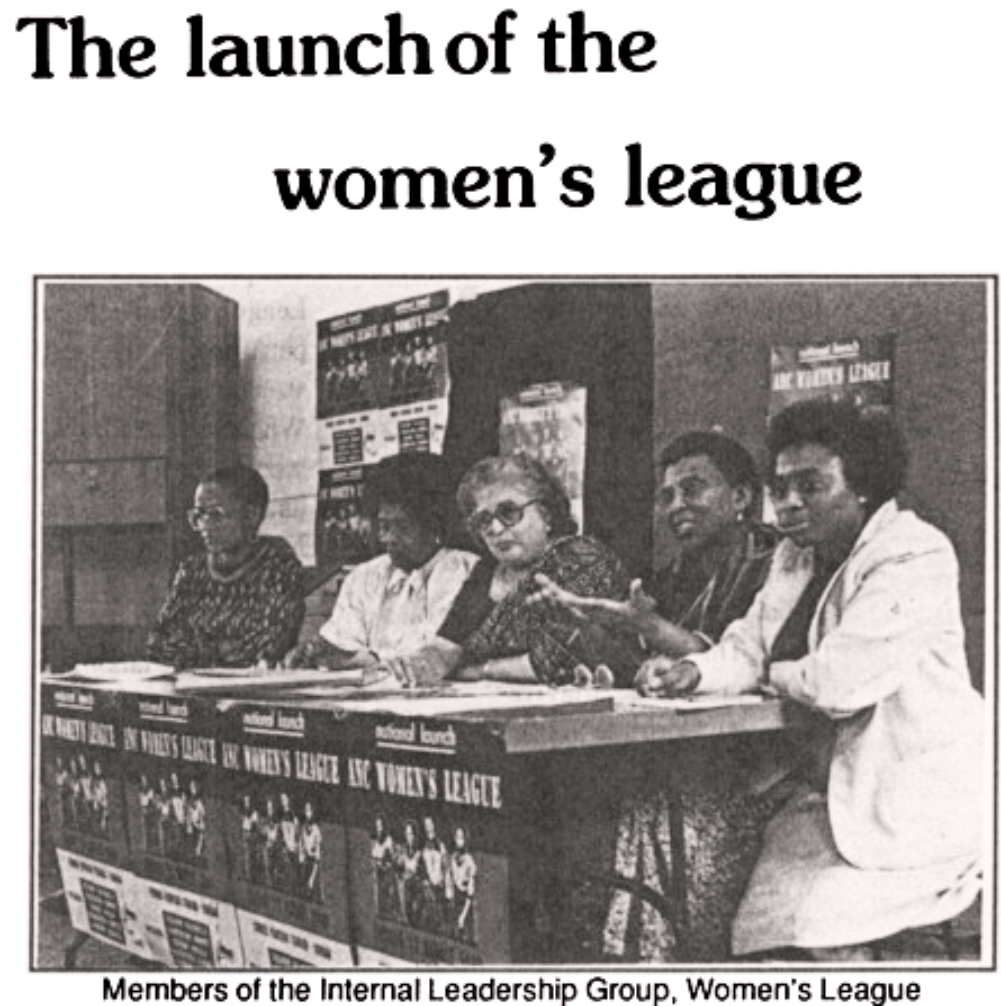
With her on the panel (pictured) were stalwarts Maviva Manzini, Gertrude Shope, Albertina Sisulu and Baleka Kgositsile. (Image courtesy of Ralf Mayet, Afripix)
Lighter side
It was at the same press briefing that she showed her not-so-often talked about lighter side when she said “I notice that none of the male journalists present are asking any questions,” prompting laughter from the large gathering of media people and sparking some of the men present into asking frantically generated questions to the panel.
TLTU expresses its deepest condolences to the Ginwala family, the people of South Africa, members of the former international solidarity communities former in the UK and across the African continent and to all those for whom Ginwala shone a light. We look forward to making accessible our oral history interview with Frene Ginwala, recorded in June 2022, in due course.
Amandla Ngawethu
(Power to the People)

Written by Thapelo Moloantoa, Digital & Communications Lead, February 2023
